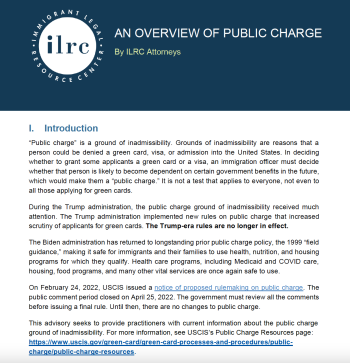
This advisory provides practitioners with current information about the public charge ground of inadmissibility, including addressing what is public charge, who does it apply to, how is public charge evaluated, and could being a public charge make someone deportable.
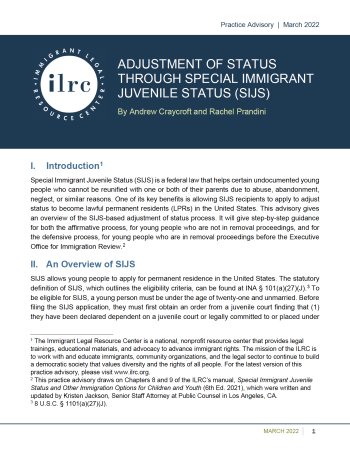
This advisory gives an overview of the SIJS-based adjustment of status process. It will give step-by-step guidance for both the affirmative process, for young people who are not in removal proceedings, and for the defensive process, for young people who are in removal proceedings before the Executive Office for Immigration Review.
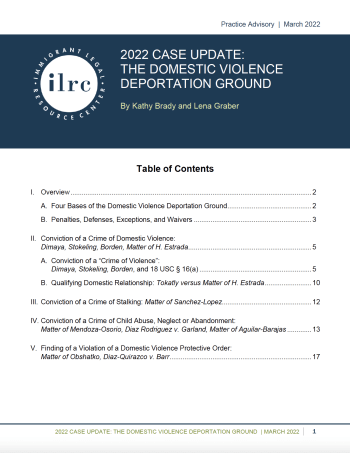
The domestic violence deportation ground at INA § 237(a)(2)(E) sets out four bases for deportation: conviction of a crime of domestic violence, a crime of stalking, or a crime of child abuse, neglect, or abandonment, or being the subject of a judicial finding of violation of a domestic violence stay-away order. Coming within one of these grounds also can be a bar to cancellation of removal for non-permanent residents or DACA.

This practice advisory contains numerous practical examples to assist in understanding how to recapture and retain priority dates in the family immigration context. It includes discussions and examples of how this concept intersects with other provisions of law, such as the Child Status Protection Act (CSPA), and adjustment of status under § 245(i) of the Immigration and Nationality Act (INA). A brief discussion and summary of the utilization of cross-chargeability of priority dates is also included.

What are ICE detainers, how do they affect a criminal case, and how can counsel get rid of them? This advisory walks through all the legal and practices issues around ICE detainers, including the role of ICE in issuing them and the role of local or state jailors in responding. We discuss the importance of incorporating ICE detainers into pre-trial strategy, the legal and constitutional issues implicated by ICE detainers, and the various ways to challenge or rescind a detainer. This advisory is national; it identifies various different state laws affecting ICE detainers.
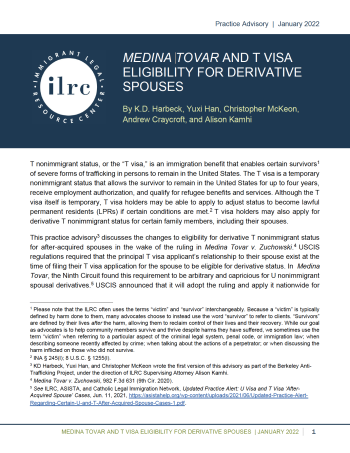
This practice advisory discusses the changes to eligibility for derivative T nonimmigrant status for after-acquired spouses in the wake of the ruling in Medina Tovar v. Zuchowski.
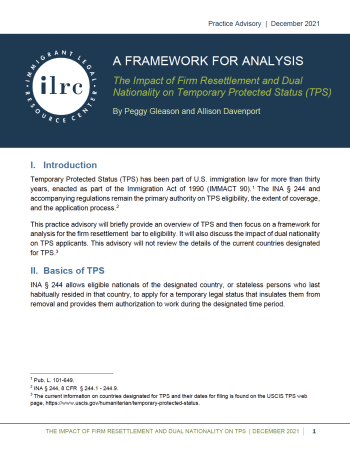
This practice advisory provides an overview of TPS and focuses on a framework for analysis for the firm resettlement bar to eligibility. It also discusses the impact of dual nationality on TPS applicants.
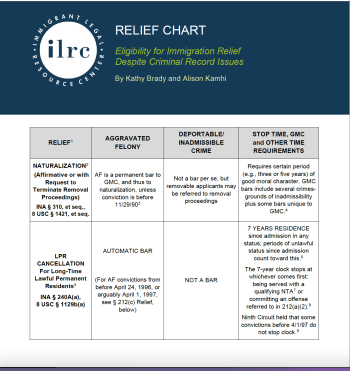
This Chart summarizes the criminal record bars to many forms of relief, to provide a quick way to check whether your client is potentially eligible for relief. See also ILRC, Immigration Relief Toolkit (2018).
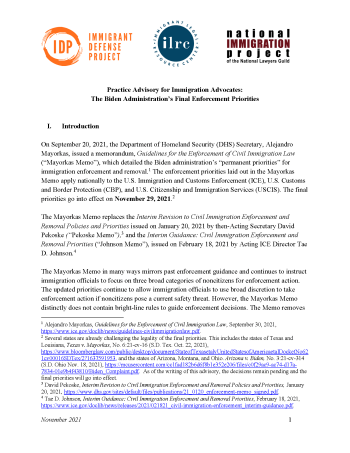
Practice Advisory for Immigration Advocates: The Biden Administration’s Final Enforcement Priorities
DHS issued new enforcement and prosecutorial discretion guidance on September 30, 2021. This practice advisory from the ILRC, NIPNLG, and IDP provides immigration practitioners with an overview of the enforcement priorities and other key policy changes described in recent DHS and ICE memos, and discusses strategies to use these priorities to advocate for prosecutorial discretion.
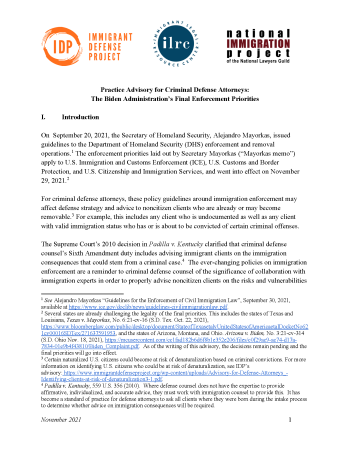
DHS issued new enforcement and prosecutorial discretion guidance on September 30, 2021. This practice advisory from the ILRC, NIPNLG, and IDP provides criminal defense practitioners with an overview of the enforcement priorities and other key policy changes described in recent DHS and ICE memos, and discusses strategies to use these priorities to advocate for prosecutorial discretion.